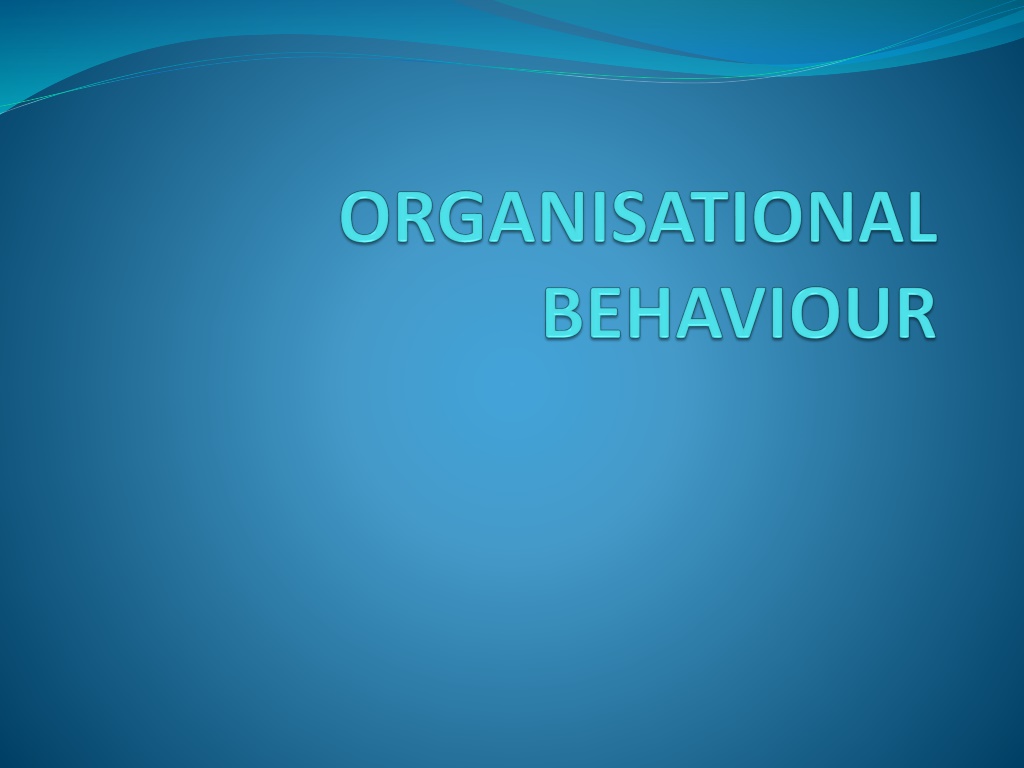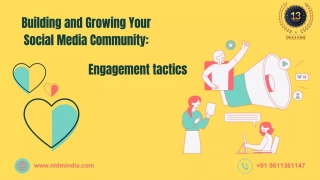
Traits Influencing Organisational Behaviour
Explore major traits influencing organizational behavior such as authoritarianism, locus of control, Machiavellianism, and introversion/extroversion. Understand how these traits impact individual behavior in the workplace.
Download Presentation

Please find below an Image/Link to download the presentation.
The content on the website is provided AS IS for your information and personal use only. It may not be sold, licensed, or shared on other websites without obtaining consent from the author. If you encounter any issues during the download, it is possible that the publisher has removed the file from their server.
You are allowed to download the files provided on this website for personal or commercial use, subject to the condition that they are used lawfully. All files are the property of their respective owners.
The content on the website is provided AS IS for your information and personal use only. It may not be sold, licensed, or shared on other websites without obtaining consent from the author.
E N D
Presentation Transcript
Major Traits Influencing Organisational Behaviour Authoritarianism : 1.
It is a generic term used to describe an individual who has strong belief in the legitimacy of established mechanisms of formal authority, Exhibits a negative philosophy of people, Adheres to conventional and traditional value systems, Rigid in their positions, Place high moral value on their beliefs Strongly oriented towards conformity to rules and regulations. Prefer autocratic or directive leadership Exhibit high respect for individuals in positions of authority.
It refers to an individuals belief that events are either within one s control (internal locus of control) or are determined by forces beyond one s control (external locus of control). Externals (those who believe that events are determined by external forces) 1. less satisfied with their jobs, 2. Higher absenteeism rates, 3. More indifferent from work setting 4. Less involved on their jobs than internals Internals (those who believe that events are within one s control). 1. More control over their own behaviour 2. More active in seeking information to make decisions 3. More active socially than externals
Major Traits Influencing Organisational Behaviour
Machiavellianism It refers to an individual propensity to manipulate people to achieve their self interest . Participate in organizational politics i.e manipulating system to their advantage. They are also involved in interpersonal game playing, power tactics and identifying influence system in organizations. In jobs that require bargaining skills (such as labour negotiation) or where there are substantial rewards for winning (commissioned sales), Machiavellians perform better.
These terms are normally associated with an individuals sociability and interpersonal orientation. Extroverts are sociable individuals Introverts are shy, quiet and retiring. Introverts and Extroverts have different career orientations and require different organizational environments to maximize performance. Extroverts are more suitable for positions that require considerable interaction with others, whereas introverts are more inclined to excel at tasks that require thought and analytical skills. Managerial positions are dominated by extroverts This managerial trait is a factor of managerial success.
Employees with a high need to achieve, 1. Continually strive to do things better. 2. Overcome obstacles, 3. They want to feel that their success or failure is due to their own actions. i.e likes tasks where the outcome can be directly attributed to his or her efforts. 4. Task with high risk is not liked by these people as the failure rates are more. 5. Looks for challenges having approximately a 50-50 chance of success on the job, 6. High achievers tend to do better in sales, sports or in management
It refers to feeling of like or dislike of one-self that varies from person to person. Self- esteem is directly related to desire for success. People with high self-esteem Have abilities to undertake challenging jobs. People with low self-esteem More susceptible to external influence ,dependent on the receipt of positive evaluation from others. In managerial positions, low esteems will tend to be concerned with pleasing others, and therefore less likely to take unpopular stands than high esteems. Self-esteem is also related to job satisfaction. High esteems are more satisfied with their jobs than the low esteems.
Risk-taking People differ in their willingness to take chances or risk Their propensity to assume or avoid risk affects managers making decisions. High-risk-taking managers made more rapid decisions and used less information in making their choices than did low-risk- taking managers. For instance, a high-risk-taking propensity - stock trader in a brokerage firm. This type of job, demands rapid decision-making. Low-risk taking propensity accountants performing auditing activities.
It refers to an individuals ability to adjust his or her behaviour to external factors. Individuals high in self-monitoring 1. Show considerable adaptability in adjusting their behaviour to external, situational factors. 2. Capable of presenting striking contradictions between their public, personal and their private selves. 3. They will be more successful in managerial positions where individuals are required to play multiple and even contradicting roles. 4. Capable of putting on different faces for different audiences.
Low self- monitors cannot deviate their behaviour. They tend to display their true dispositions and attitude in every situation, hence there is high behavioural consistency between who they are and what they do.
Type A Personality and Type B Personality
Type A personality Person who is always in a hurry Extremely competitive Often hostile and irritable. Highly competitive and hardworking Make most successful sales people and senior executive
Type B personality Relaxed, Incompetent and Easy going. Climbs up to the top of organization. Why because Type A s to trade off quality of effort for quantity. Executive positions usually go to those who are patient rather than to those who are merely hasty, to those who are tactful rather than to those who are hostile and to those who are creative rather than to whose who are merely agile in competitive strife.






















